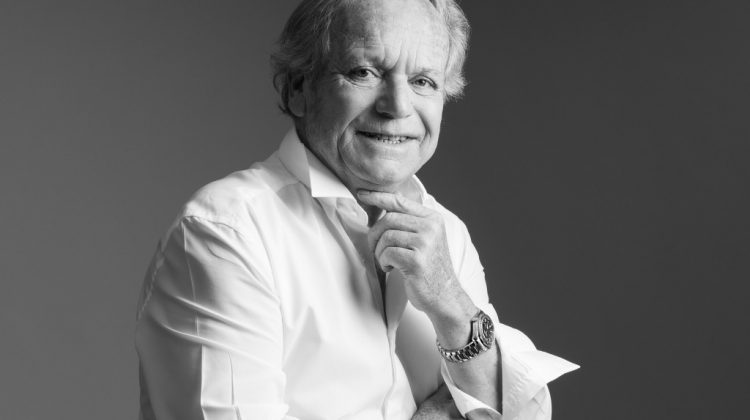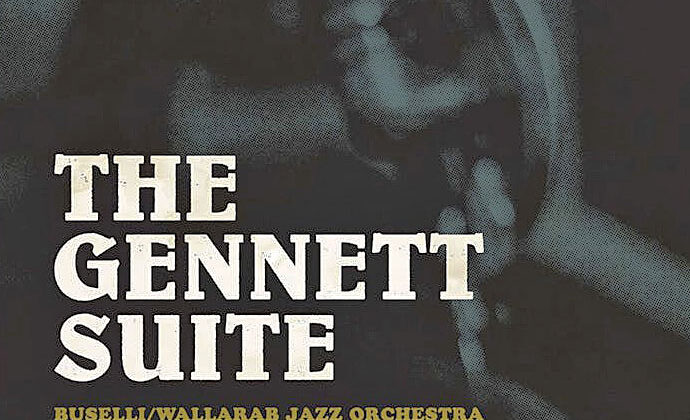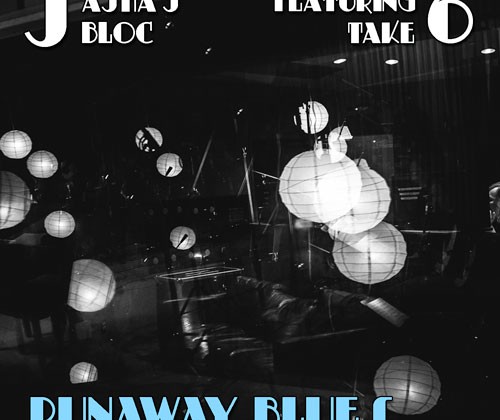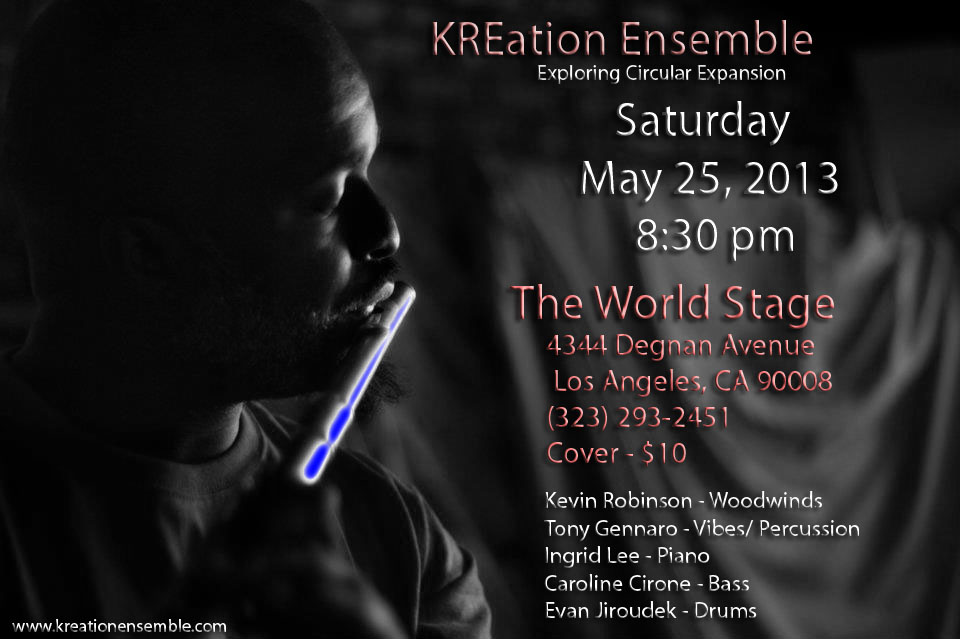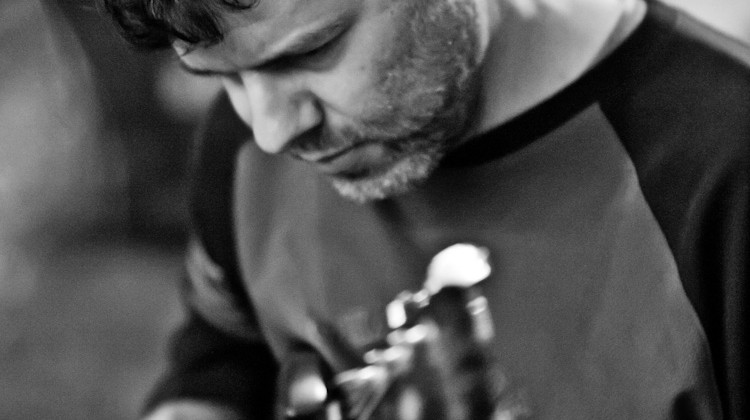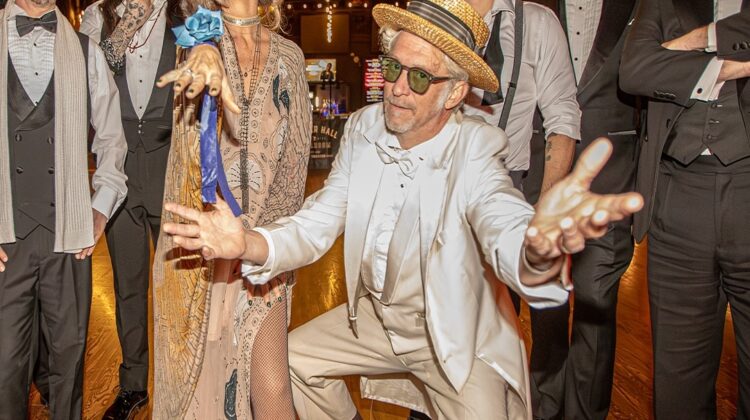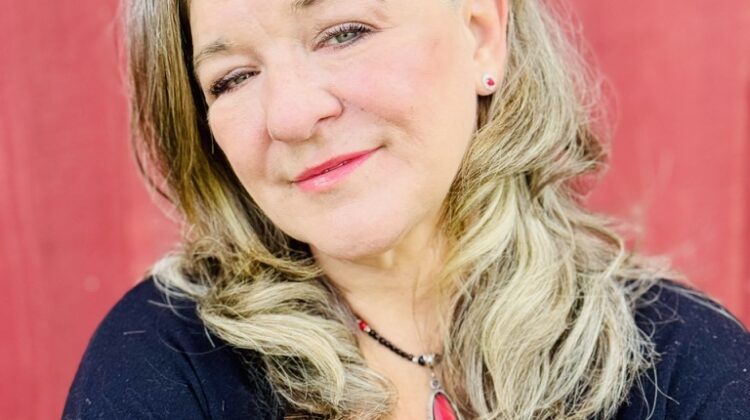Composer Wolfgang Amadeus Mozart once remarked about his philosophy towards mankind’s intellect, “Neither a lofty degree of intelligence nor imagination nor both together go to the making of genius. Love, love, love, that is the soul of genius.” Any way you slice the theory of genius all stems from the soul’s artistic creation, which exhumes from the love of the completion of said art. This is what Mozart was referring too and what composer/artist Elise Lebec educates and adopts too, with each turn of her music sheets.
The love of one’s craft often times, through the escape into the artist’s passionate quest, falls directly into the embracement of one’s hidden lone vision. This is the psyche of Elise Lebec as she follows her journey through film and fundamentals with a massive dose of innovation with a prescription for inspiration.
Elise Lebec is a gentle soul but with an ardent inner intellect to spawn that which never has been. Her drive to be the gentle giant midst the flight of film composers is compelling. One can also observe through her style that her years as a multi-genre artist did not go wasted. As an eclectic mindset has influenced many of our “out of the genre” giants so as it her, in many film scores she has created.
Through many of Ms. Lebec numerous ventures amidst her pedagogy in music, she exhibits the refreshing talent to go from thorny rhythms to the reflective moods of chameleon-esque melodies, let us make no mistake about her style and emotionally based mystique, she is not your usual mainstream maestro.
Numerous influences, as we find out through this conversation has been directly responsible for her redirecting into the composer circle from that of world music and jazz orientated surroundings. Ms. Lebec coming off her 2006 CD Possible Dreams, which had numerous accolades from audiences, should have tipped us off that times were changing for her. It was no surprise to the industry that her focus and strategy went further than what she presented in the past.
As we enter the world of composer Elise Lebec, one must remind oneself of those before her that took to music on a much higher level, as when she first entered. Lets go between the heart, soul, talent and music sheets of Ms. Elise Lebec…
Karl Stober: Is there a difference between composing for film versus albums?
Elise Lebec: Yes. When I compose for films I am really trying to convey what the emotion is in that particular scene. I am also trying to convey this within the realm of what the director would like to hear. Some directors don’t like the sound of certain instruments so I try to bring in new instruments that they will like but still create a similar sound of emotion. The last film I composed for, the director didn’t want any piano but she liked bells and harp and marimba. I used my keyboard to create this score for her using these sounds only.
When I compose for an album I come from the experience of my own life and I try to listen to the silence. When I start to create an album I always end up trying too hard at first and then after several attempts and exhaustion, I will normally give in to the “source” and it will lead me from there. That’s when it starts to sound good. It’s all about surrender and practice. If I don’t practice, then my muscles and mind are not ready to receive. It takes strength and a knowing of your purpose to be able to surrender.
Karl Stober: How would you describe your style and work ethic?
Elise Lebec: My work ethic is always geared towards finding what is true about a project and putting a 100% of energy into making sure that the truth is conveyed musically. My style is fluid and present.
Karl Stober: You have been an artist, label owner, etc. What made you take to composing over all else?
Elise Lebec: Ever since I went on set at the 007 James Bond at Pinewood Studios in England, I got a thirst for composing for film. I don’t think I have ever separated owning a label, being an artist and composing. They all go together. I love other artists who are passionate about their music, which made me start a label of my own. However, it took too much of my time and I wasn’t able to compose my own music while keeping up with the paperwork and the technical/business side of things. Being an artist was also like that for me, it seemed that most of my time was spent “being an artist” instead of making music. I remember when I was being produced by Chris Boardman, who created the backing tracks for Celine Dion, we spent more time going shopping for the right “look” and the getting the right sexy haircut and photos and stuff, that we only actually recorded four songs. That’s when I thought that perhaps writing music and staying out of the limelight would be a better use of my talent. So I started composing full time for film.
Karl Stober: Who were your greatest influences as to composing?
Elise Lebec: Vivaldi, Beethoven, Liz Story, George Winston, Mozart. Cole Porter. Miles Davis, Joni Mitchell
I very seldom go into the private lives of an artist in print but suffice to say, Ms. Lebec’s life is a major influence in what she creates. Her emotional moods, morphed with her music intellect, become a major double bill in the industry and film scoring. This assists in her music to become a therapeutic sway without the restless arrangements. Thus avoiding sending listeners free-wheeling. One will notice as we go on that her life is her foundation, albeit becoming vulnerable to emotions, she cheats tension which make her compositions so unique.
Karl Stober: Who is Elise Lebec as a mother, wife and composer?
Elise Lebec: I am the mom who sings while making dinner. We have two pianos in the living room and my oldest daughter plays one while my son plays the other. Music is first in our house. For the first two years of my son’s life I am sure he thought life was a musical because everything we said to him was said with a melody. He started singing before he could talk. I take my son to music class on Tuesdays and my daughter goes to piano lessons on Fridays. Its hard to be a mother and a wife and a composer because its takes so much time to do each thing but without my family I would have no inspiration and without my music I would not be inspiring so it must all continue at the same pace and at the same time.
Karl Stober: How would you describe your life and issues within the industry for female composer in today’s music business?
Elise Lebec: As always and for some strange reason female composers are still not taken seriously. Male composers are always chosen first whether they are more talented or not. I guess it goes way back to when women just had babies and the men were taught to read and write. My greatest skill is composing so it is frustrating to constantly hear other male composers getting the films that I could have done so easily.
Karl Stober: Describe any impact your family past and present has had on your career as a composer.
Elise Lebec: Well I have two children so there is always an adjustment period usually of two years whereby I don’t have a lot of time to “do business”. This has cost me in many ways because the minute you stop in this industry someone else is ready to run so I have missed some opportunities because of family. Also family takes up time and energy, so many times I am juggling family just so I can sit down for an hour and play piano. Its hard but its getting easier and like I said before, I am inspired and fulfilled by my family, I wouldn’t change a thing.
Karl Stober: Do you consider yourself an “outside the textbook” artist and composer? Why?
Elise Lebec: I am not a textbook composer because I am self-taught. I have an ear for music. I can hear a tune in my head and then perform the melody with several different instruments that go with that melody all in my head. Then I can use a keyboard to get the music recorded. I’ve had to work hard to pay attention to experienced musicians and composers to see what they do, to learn the notes and find out what they did technically. I wish I had more education so I didn’t have to rely on computers as much for scoring but I hear melodies all the time and my technique comes from a gift of being able to hear what something sounds like. I don’t believe this a teachable skill. I am so grateful for this.
Karl Stober: Is there a specific concept you are drawn to, for example a comedy, documentary, etc.? Explain.
Elise Lebec: I am drawn towards Romantic Dramas and the funny thing is that I almost only do Documentaries.
Karl Stober: What do you consider a composers major asset?
Elise Lebec: Being able to convey just enough emotion to reach the heart but not too much to make it mushy. A composer must be able to hear what the director wants and also have a unique sound that can be identified.
Karl Stober: Describe yourself when you’re in the groove? Your psyche and approach…
Elise Lebec: When I am in the groove, my ego/persona is not there. I step out of the way to create anything enjoyable to listen to. I lose myself and fall into somewhat of a trance state. When I return to listen to what I created, I have no memory of it.
Karl Stober: Describe the market in the film industry for composers today.
Elise Lebec: The market is hard as usual. One must find a niche and then excel as far as you can in that place in order to build a name. One must be willing to work within all kinds of budgets and personalities. It’s hard to get to the top directors because by the time they get to the top they have been using their favorite composer who has struggled with them. It’s a very personal business, composing. Some of my clients of whom I’ve done a few films with now are like family to me.
Karl Stober: Do you use any other instruments other than the piano to compose?
Elise Lebec: I use guitar, drums, strings, dance beats, loops, and voice. Keyboard.
Karl Stober: What are your plans for 2014?
Elise Lebec: Ah, my plans are to finish my next album and start working on the next. I want to start doing a few concerts here and there as well. I would also like to win a Grammy. This is my goal for 2014!
Karl Stober: What advice would you give young composers just starting out in the business?
Elise Lebec: The advice I would give is to keep making music all the time. Don’t expect results but be active and strong. If you are meant to be a composer, the opportunities will arise from nowhere. You may have to do a lot of free work until you have the appropriate experience. You may be great at composing but if you want to work on films there is a whole other world to learn about composing to film that only comes with experience.
Karl Stober: What would you like to say to your fans out there who have experienced your music not only in composing but also with your four previous CDs.?
Elise Lebec: My fans are very dear to me. I would like to say thank you for tuning in and being kindred spirits. My fans write to me all the time and say how the music has healed them or helped them with a creative project or just gave them some comfort. Its my job to make sure that this music flows from me so I promise to keep doing my part so I can get this music out to you.
Karl Stober: Now lets play with your mind for the humor of it!
– What film past or present would you like to compose for?
Well I was actually playing an old piano living on an isolated beach in South Island New Zealand while “The Piano” movie was being filmed. I have always wanted to do the music for that film. To be able to compose any film by Jane Campion would be a dream come true for me. I think she is amazing.
– When you want to get away where do you go?
I go to any beach that is empty with a view of the sea for miles on either side. Somewhere that reminds me of living in New Zealand. It’s the only place that clears my mind.
– What’s your favorite comfort food?
Mashed potatoes with garlic and olive oil and a touch of Tamari sauce and a dab of Rooster sauce. I do like my sauces.
– What’s your favorite expletive?
Actually…
– If you could have only three albums on your iPod but would it be?
Out of Africa soundtrack. “The Four Seasons” performed by Nigel Kennedy. “Blue” Joni Mitchell
Keep it Tuned-KS

